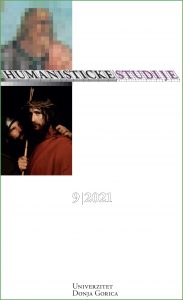„Odsanjati košmar do kraja“: modernizam, (anti)tradicija i „jezik mrtvih“
‘To Dream the Nightmare Out to the End’: Modernism’ (Anti-)Tradition, and ‘the Language of the Dead’
Author(s): Vladimir M. VujoševićSubject(s): Theory of Literature
Published by: Univerzitet Donja Gorica
Keywords: Modernism; tradition; mythopoetics; private myth; Joseph Conrad; T. S. Eliot; William Faulkner; katabasis
Summary/Abstract: The tension between ‘tradition’ (as a system of communal cultural patterns) and ‘private experience’ is among the crucial features of Anglophone Modernism. Modernism has been described as a narrative turn towards the extreme subjectivity, probably due to the dominant sense of rupture with the stable Western cultural tradition in the aftermath of various dramatic events at the turn of the century. In an attempt to provide an utterly subjective narration with some narrative stability, Modernist authors often appropriate ‘myths’ (as universally recognizable plotlines embedded in cultural tradition) in order to employ them as symbolic frameworks for their own narratives. However, this Modernist use of ‘myth’ as a scaffolding for an otherwise extremely subjective narration always proves to be essentially unsuccessful because, in Modernism, a ‘myth’ is always transformed, ‘particularized’ (through excessive interpretation) into a private reference. A peculiar process of ‘translation’ of the cultural tradition into an uncommunicative and haunting ‘private language’ (‘the language of the dead’) is at work in much of the Modernist literary practice.
Journal: Humanističke studije
- Issue Year: 2021
- Issue No: 9
- Page Range: 107-126
- Page Count: 20
- Language: Montenegrine

